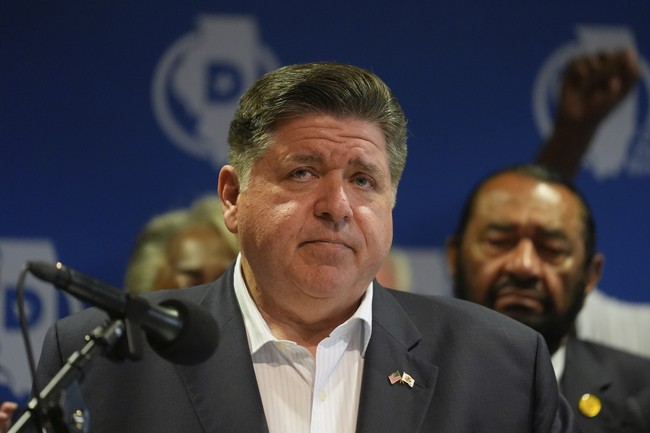Illinois lawmakers narrowly approved a bill that would legalize physician-assisted suicide, sending the measure to Governor JB Pritzker after a 30–27 vote. The proposal would let doctors prescribe lethal medication to patients judged terminal with less than six months to live, raising sharp concerns about religious liberty, institutional conscience protections, and the potential for Illinois to attract people from other states seeking this option.
The vote came on Halloween, and supporters framed the legislation as a compassionate option for the terminally ill facing unbearable pain. Opponents say the measure goes farther than simply allowing individual choice and instead imposes obligations that could clash with religious beliefs and medical conscience. The debate now shifts to the governor’s desk, where Pritzker has acknowledged the human pain at stake but has not signaled a final decision.
Under the proposed law, physicians may prescribe a lethal dose to qualifying patients, but the bill also includes rules about informing patients and referring them to providers who will prescribe the medication. Critics point out that these referral and information requirements could pressure faith-based hospitals, clinics, and doctors to participate indirectly. Religious institutions worry they may be compelled to facilitate actions that contradict their doctrines, even if their staff decline to prescribe the drugs themselves.
Breaking: The Illinois Senate passed physician assisted suicide in the early morning hours. Bishop Paprocki condemns the action:
"It is quite fitting that the forces of the culture of death in the Illinois General Assembly passed physician-assisted suicide on October 31—a day… pic.twitter.com/3JwFl8XBrU
— Diocese of Spfld (@diospringfield) October 31, 2025
The head of litigation at the Thomas More Society, a Roman Catholic public interest law firm, Peter Breen, “You’re not just allowing physicians to give people deadly drugs to kill themselves, but you’re actually forcing us or people of faith, to be part of it, to promote it. I know of no other state where the legislature has gone this far in restricting the religious liberty rights of people of faith.” Breen has warned that the society would seek a quick legal challenge if the governor signs the bill, arguing the law infringes constitutionally protected religious freedom.
While the bill does not compel every doctor to prescribe lethal drugs, its referral rules are the central gripe for many faith-based providers. Those institutions worry that patient-facing staff will be required to inform patients about the option or to hand them off to colleagues who will comply. That kind of institutional involvement is what opponents say crosses a line from private choice to public coercion of conscience and religious practice.
Governor Pritzker offered a personal note of empathy when asked about the measure, saying, “I know how terrible it is that someone who’s in the last six months of their life could be experiencing terrible pain and anguish. And I know people who’ve gone through that. It hits me deeply and makes me wonder about, you know, how we can alleviate the pain that they’re going through?” His remarks underscore the emotional weight of the issue even as legal and ethical questions remain unresolved.
Currently, 11 states and the District of Columbia permit physician-assisted suicide, and Illinois would be the first in the Midwest to adopt such a law. That distinction matters to critics who warn about people traveling from neighboring states to access assisted dying, a phenomenon sometimes called suicide tourism. Those concerns focus not just on policy but on broader consequences for medical culture and the obligations of healthcare institutions that operate under religious principles.
Legal action appears likely if the governor signs the bill, according to Breen, who said his organization is prepared to sue to block it. The central constitutional claim will hinge on whether the state can require institutions and physicians to facilitate or refer for a practice that conflicts with their religious convictions. For those who value religious liberty and medical conscience protections, the coming weeks will test whether the law respects those fundamental rights.
The conversation in Illinois highlights a broader national debate about how to balance compassion for the terminally ill with safeguards for vulnerable patients and protections for religious and medical conscience. Lawmakers and voters are being asked to weigh not only end-of-life autonomy but also the effect such a law would have on institutions that serve large communities of faith. The outcome could reshape how states handle the intersection of healthcare, conscience, and the role of religion in public life.






